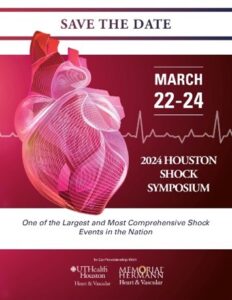The implantable cardioverter defibrillator (ICD) is frequently utilized in patients with heart failure for primary and secondary prevention and treatment of unstable arrhythmias. This device is a unique medical intervention that may improve survival for select patients but does not necessarily improve quality of life and may even lead to detrimental impacts.
At the 2023 Houston Shock Symposium, Dr. Haider Warraich – director of the heart failure program at VA Boston Healthcare, assistant professor at Brigham and Women’s Hospital and prolific author highlighted the psychological stress that can impact ICD recipients and the physician role in addressing these stressors with our patients.
Psychological stressors can present in many ways in ICD recipients; ranging from feeling phantom shocks to avoiding engagements due to fear of shock and persistent hyper-vigilance. Identified risk factors for increased psychosocial distress in ICD recipients include younger age less than 50 years old, female gender, low social support, premorbid psychiatric diagnosis, and greater than 5 appropriate or inappropriate defibrillations.1


 © 2025 Mashup Media, LLC, a Formedics Property. All Rights Reserved.
© 2025 Mashup Media, LLC, a Formedics Property. All Rights Reserved.